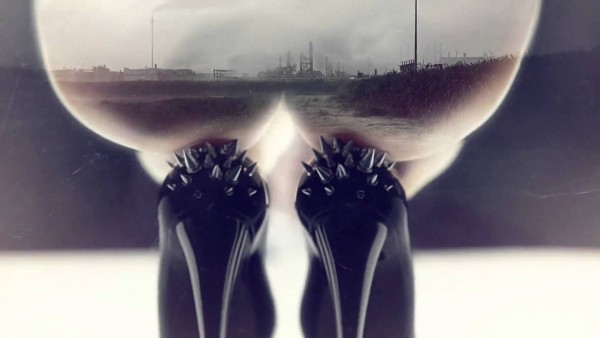Support Hos: True Detective

One of my partners cautioned me that I might take issue with the treatment of sex workers in season one of True Detective. Yet somehow, I completely forgot their warning, and found myself marathoning it over a few days several months ago. The first season is a continual whorephobic, misogynistic trainwreck, so it’s difficult for me to pinpoint why I liked it so much—aside from the frequent views of Matthew McConaughey’s stunning physique, of course.
To say that True Detective is masterfully produced is an understatement. A Southern noir set in Louisiana, it’s the story of a murder investigation spanning 17 years between 1995 and 2012. With lush cinematography, careful direction, and well-rounded, complex characters, it is a tight and compelling show. The acting is superb, especially Matthew McConaughey’s performance as dysfunctional, misanthropic detective Rust Cohle.
Where True Detective falls flat is in its writing and storyline, which both rely heavily on classic serial killer, police procedural, and anti-hero tropes. The fact that sex workers are going to be used as props for the story, rather than the well-rounded, complex characters they deserve to be, is apparent from the opening credits. We see a bare female ass and a pair of spiky high heel shoes, a stripper shimmying in slow-motion in a patriotic one-piece, a heavily made-up eye fading into a line of trucks at a truck stop. The mournful country ballad playing over these images is mesmerizing, but adds an unmistakable foreboding tone of violence over these sexualized representations of femininity.
The show’s creator, Nic Pizzolatto, stated that he did not want True Detective to be “just another serial killer show.” Here’s what I want to know: if your intent is for your serial killer show to not be just another serial killer show, why make it about the serial killing of sex workers, an overused trope if there ever was one? The victim of the ritualistic, apparently occult murder that Cohle and his partner Marty Hart (Woody Harrelson) are investigating in 1995 is named Dora Lange (Amanda Rose Batz). We don’t learn her name until about mid-way through the first episode, but we learn that Cohle suspects she is a sex worker—or a “prost,” as he calls them—when he tells Hart that the victim has herpes sores around her mouth and bad teeth. Unfortunately, I suspect that this is probably an accurate portrayal of how detectives attempt to identify a murdered sex worker, both in 1995 and 20 years later in 2015.
It was a huge disappointment, though not a shock, to discover that Cohle’s suspicions about Lange are spot on. He rubs salt in the wound when he states he’s going to investigate a local “prost farm” to see if he can discover her identity. The “prost farm” ends up being a truck stop where he interviews two sex workers who are not nearly as leery of him as they should be. He behaves in a threatening manner toward them from the very start, but instead of running for the hills, they both give him the information he’s looking for, as one obviously does any time a police officer comes sniffing around without a warrant. In a scene that is meant to develop Cohle as a character with drug dependency issues, sex workers are further stereotyped when he asks one of them if she can get him some quaaludes. Remember, this is 1995—quaaludes weren’t even a thing at that point, having been off the market since 1984. Any self-respecting drug dealing sex worker would have laughed in his face. But she states instead that they “could be hard to get,” then ultimately produces them. The scene reaffirms the idea of sex workers as all purpose drug dispensing machines for middle class white men on benders.